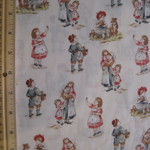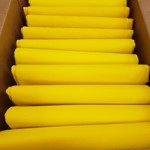FREE: QUEEN Iron On Patch Band Patch Freddy Mercury Classic Rock FREE SHIPPING

A member of Listia gave this away for free!
Do you want FREE stuff like this?
Listia is 100% Free to use
Over 100,000 items are FREE on Listia
Declutter your home & save money

"Listia is like EBay, except everything is free" - Los Angeles Times

"An Awesome Way To Give And Get Free Stuff" - Michael Arrington, TechCrunch
This Stuff is Free Too:

FREE

FREE

FREE

FREE

FREE
The listing, QUEEN Iron On Patch Band Patch Freddy Mercury Classic Rock FREE SHIPPING has ended.
OLD, but never Used, not sure what year =\2.6 x 2.8 INCHES
Great for customizing backpacks, shirts, shorts, skirts, baby onesie, hats, diaper bags, anything with fabric! Iron on Patch! :]
Queen are a British rock band that formed in London in 1970. Their classic line-up was Freddie Mercury (lead vocals, piano), Brian May (lead guitar, vocals), Roger Taylor (drums, vocals), and John Deacon (bass guitar). Queen's earliest works were influenced by progressive rock, hard rock and heavy metal, but the band gradually ventured into more conventional and radio-friendly works by incorporating further styles, such as arena rock and pop rock, into their music. Before forming Queen, Brian May and Roger Taylor had played together in Smile. Mercury, then known by his birth name, Farrokh "Freddie" Bulsara, was a fan of Smile and encouraged them to experiment with more elaborate stage and recording techniques. Mercury joined in 1970, suggested the name "Queen", and adopted his familiar stage name. Deacon was recruited before the band recorded their eponymous debut album in 1973. Queen first charted in the UK with their second album, Queen II, in 1974, but it was the release of Sheer Heart Attack later that year and A Night at the Opera in 1975 which brought them international success. The latter featured "Bohemian Rhapsody", which stayed at number one in the UK for nine weeks and was influential in helping to popularise the music video.
The band's 1977 album News of the World contained "We Will Rock You" and "We Are the Champions", which have become anthems at sporting events. By the early 1980s, Queen were one of the biggest stadium rock bands in the world. "Another One Bites the Dust" (1980) became their best-selling single, while their 1981 compilation album Greatest Hits is the best-selling album in the UK and is certified eight times platinum in the US. Their performance at the 1985 Live Aid concert has been ranked among the greatest in rock history

